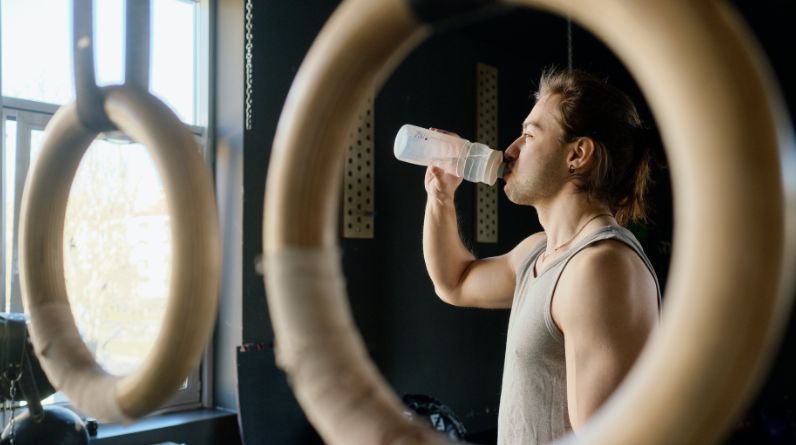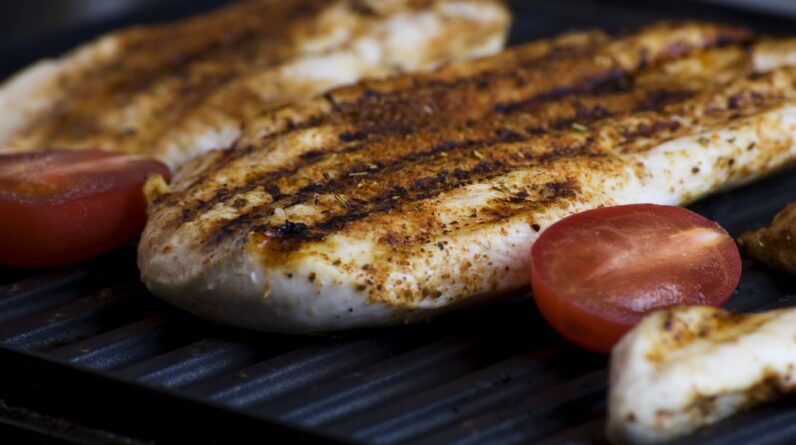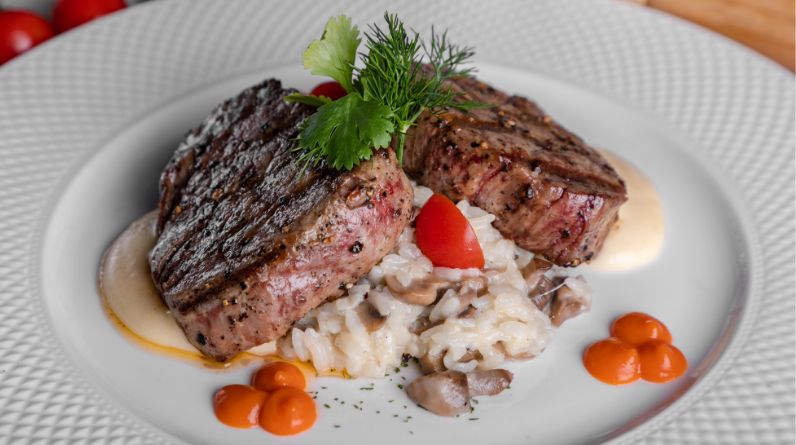
When it comes to bodybuilding, proper nutrition plays a vital role in achieving your fitness goals. Fueling your body with the right nutrients not only supports muscle growth and recovery but also optimizes your overall performance. In this article, we will provide you with a comprehensive guide to bodybuilding nutrition. From macronutrients to meal timing, we’ll cover all the essential aspects you need to know to fuel your body for success in your bodybuilding journey.
Understanding Macronutrients:
Macronutrients are the three major nutrients that your body needs in large quantities for energy and growth. They are:
Protein: Protein is the building block of muscle tissue and is crucial for muscle repair and growth. Aim to consume 1 to 1.5 grams of protein per pound of body weight each day. Good sources of protein include lean meats, poultry, fish, eggs, dairy products, and plant-based sources like legumes, tofu, and tempeh.
Carbohydrates: Carbohydrates are the primary source of energy for your body, especially during intense workouts. Choose complex carbs instead, like those found in whole grains, fruits, vegetables, and legumes. Aim to consume an adequate amount of carbohydrates to support your energy needs and fuel your workouts.
Fats: Healthy fats are essential for hormone production, joint health, and overall well-being. Include sources of unsaturated fats like avocados, nuts, seeds, olive oil, and fatty fish (such as salmon and mackerel) in your diet. While fats should be consumed in moderation, they are an important part of a balanced bodybuilding diet.
The Role of Micronutrients
In addition to macronutrients, micronutrients are essential for overall health and optimal body function. Micronutrients include vitamins and minerals, which support various bodily processes. Ensure you incorporate a variety of fruits, vegetables, whole grains, and other nutrient-dense foods to meet your micronutrient needs. If necessary, consider incorporating multivitamins or specific supplements to address any nutrient deficiencies.
Meal Timing and Frequency
Meal timing and frequency can influence your energy levels, muscle recovery, and nutrient utilization. Consider the following guidelines:
Pre-Workout Nutrition: Consume a balanced meal or snack containing carbohydrates and protein 1-2 hours before your workout. This provides energy for your workout and supports muscle protein synthesis.
Post-Workout Nutrition: Consume a post-workout meal or shake within 1-2 hours after your workout. This meal should contain a combination of carbohydrates and protein to replenish glycogen stores and promote muscle repair and growth.
Meal Frequency: Aim for regular meals and snacks every 2-3 hours throughout the day to maintain a steady supply of nutrients to your body. This approach optimizes energy levels, supports muscle growth, and prevents excessive hunger.
Pre-Bedtime Snack: Consuming a balanced snack containing protein and slow-digesting carbohydrates before bed can support muscle recovery and prevent muscle breakdown during sleep.
Hydration for Optimal Performance
Proper hydration is essential for optimal performance, muscle function, and overall health. Here are some hydration tips:
Water Intake: Drink water throughout the day to maintain hydration. Aim for at least 8-10 glasses (64-80 ounces) of water daily, or more if you engage in intense workouts or live in a hot climate.
Electrolytes: During intense workouts, consider consuming fluids that contain electrolytes (such as sodium, potassium, and magnesium) to replenish what is lost through sweat.
Use urine color as a general indicator of hydration by keeping an eye on it. Ideally, urine should be pale yellow or straw-colored. Dark-colored urine may indicate dehydration and the need to increase fluid intake.
Tailoring Your Diet to Your Goals
To achieve specific bodybuilding goals, you may need to adjust your diet accordingly. Consider the following scenarios:
Building Muscle: If your primary goal is to build muscle, aim for a slight caloric surplus by consuming more calories than you burn. Focus on meeting your protein needs, consuming complex carbohydrates for energy, and incorporating healthy fats.
Losing Fat: If your goal is to reduce body fat while maintaining muscle mass, aim for a slight caloric deficit. Emphasize nutrient-dense foods, prioritize protein intake to support muscle retention, and moderate your carbohydrate and fat intake.
Body Recomposition: Body recomposition involves simultaneously losing fat and gaining muscle. This approach requires a slight caloric deficit while maintaining a high protein intake to support muscle growth and repair.
FREQUENTLY ASKED QUESTIONS
1. Do I need to take supplements for bodybuilding?
Although they are not required, supplements can improve your diet. Focus on meeting your nutritional needs through whole foods first. Supplements like protein powder, creatine, and omega-3 fatty acids can be beneficial if they align with your goals and preferences.
2. Can a vegetarian or vegan diet help me gain muscle?
Yes, a vegetarian or vegan diet can help you gain muscle mass. Ensure you consume a variety of plant-based protein sources (such as legumes, tofu, tempeh, seitan, and plant-based protein powders) to meet your protein needs.
3. Should I track my macronutrients and calories?
Tracking macronutrients and calories can be helpful in achieving specific body composition goals. It provides you with a better understanding of your nutrient intake and helps you make adjustments as needed. However, it’s not mandatory, and some individuals may prefer a more intuitive approach to eating.
4. Is it necessary to eat small meals throughout the day?
The frequency of meals is a personal preference. Some individuals find it beneficial to eat smaller, more frequent meals to maintain energy levels and support muscle growth. Others prefer larger, less frequent meals. Find an eating pattern that works best for your schedule and preferences while meeting your nutritional needs.
5. Can I indulge in occasional treats or cheat meals?
Occasional treats or cheat meals can be included in your diet, as long as they fit within your overall calorie and macronutrient goals. However, moderation is key. Remember to prioritize nutrient-dense foods that support your bodybuilding goals and maintain balance in your diet.







1 Comment
Comments are closed.